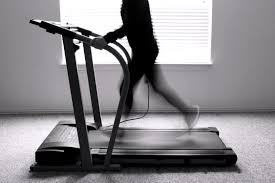Menopause is a state of health in which a woman does not have a period for 12 consecutive months. Also, her chances of getting pregnant are reduced. However, this condition develops only between the ages of 45 and 55. But sometimes this condition comes before age and sometimes much later. Menopause is a natural condition, but there are some problems associated with it. So you must know everything about this condition so that you can manage it properly.

What is the right age for menopause?
According to research from the National Institutes of Health, the age of menopause is thought to be predetermined, but conditions such as smoking or chemotherapy can lead to rapid ovarian decline, which can lead to menopause earlier than the correct age.
According to experts, the average age for the onset of menopause has been observed to be 51 years. Because most women stop menstruating between the age of 45 to 55 years. Apart from this, the ovaries of some women stop working early. While some women's menstruation continues till the end of the age of 50.
Know here about the different conditions of menopause
Menopause is defined as the absence of menstruation for a full year. But this situation can be different for every woman. So far, two main types of menopause have been observed, which include perimenopause and postmenopause.
During the period of perimenopause, periods often become irregular, they start coming late. Apart from this, one or more periods are completely missed. The flow of period blood also sometimes becomes heavy or sometimes light. When you are in postmenopause, your periods last for more than 12 months in a row.
These symptoms indicate that you are approaching menopause
Every woman's experience of menopause is different. These symptoms can last from a short time to a long time. According to the Department of Health and Human Services, these main reasons appear in the event of menopause –

1. Irregular periods
Irregular periods can be related to many reasons, such as health problems or pregnancy. But this reason can also be associated with menopause. The first and foremost symptom of menopause is irregular periods. During this period, the flow of periods sometimes becomes more and sometimes less.
2. Vaginal Dryness
The problem of vaginal dryness, itching, or discomfort comes from the stage of perimenopause to the stage of menopause. With this type of symptom, the woman starts feeling tingling and restlessness during vaginal sex. Apart from this, the risk of spreading infection can also increase if there is a problem of cuts or tears on the skin.
3. Hot Flashes Problem
Hot flashes are a type of feeling in which the upper part of the body starts feeling hot. It is most commonly felt on the face, neck, and chest. According to the National Institutes of Health, the problem of hot flashes is also a reason for the symptoms of menopause. Hot flashes can also include sweating and red patches on the skin.
4. Emotional health and sleep problems
Difficulty sleeping is also included in the symptoms of menopause. Along with this, increasing anxiety and frequent visits to urinate are also included. Apart from this, depression, anxiety, and mood swings are also common in menopause.
A 2018 research by the National Institutes of Health found a link between menopause and suicide. It is known that during menopause, the mental state of the woman starts becoming very weak.

5. Other Physical Symptoms
According to the Department of Health and Human Services, many mental and physical changes occur during menopause. The main reasons for this include weight gain, change in voice along with hair color. Apart from this, there is a decrease in breast size, etc.










